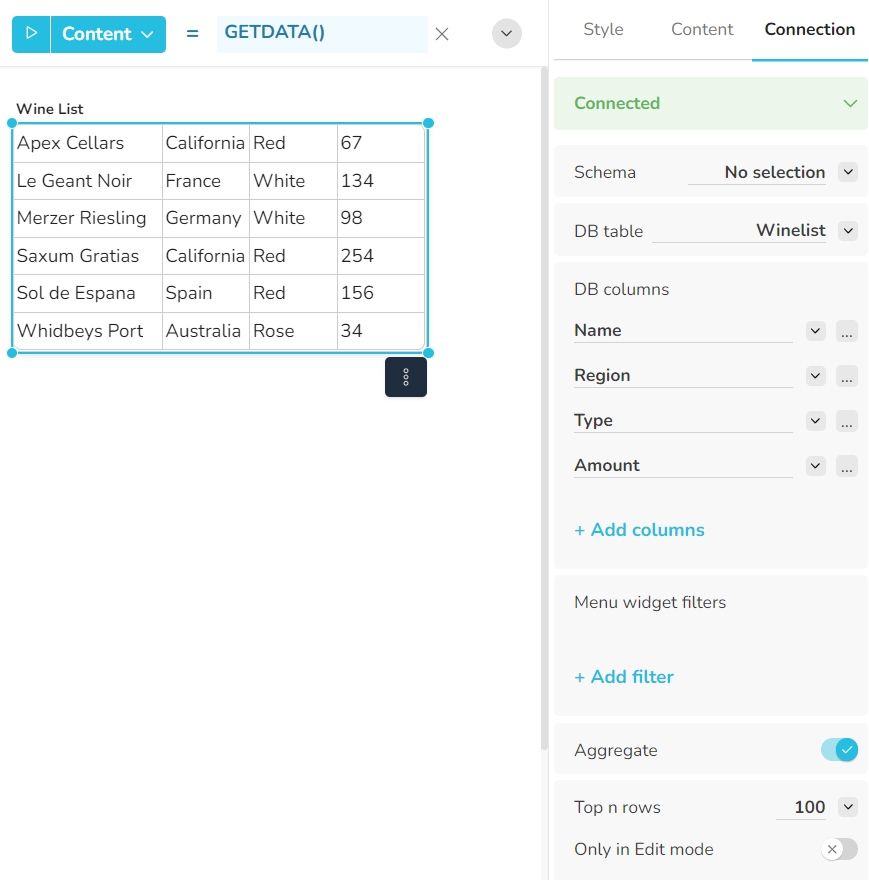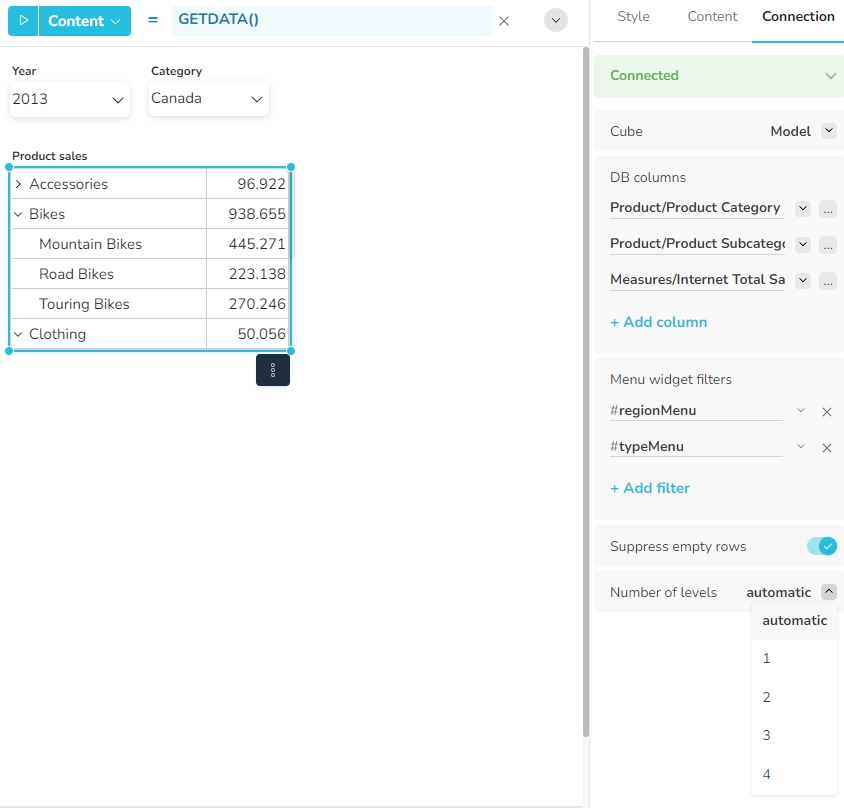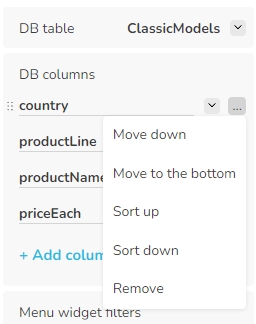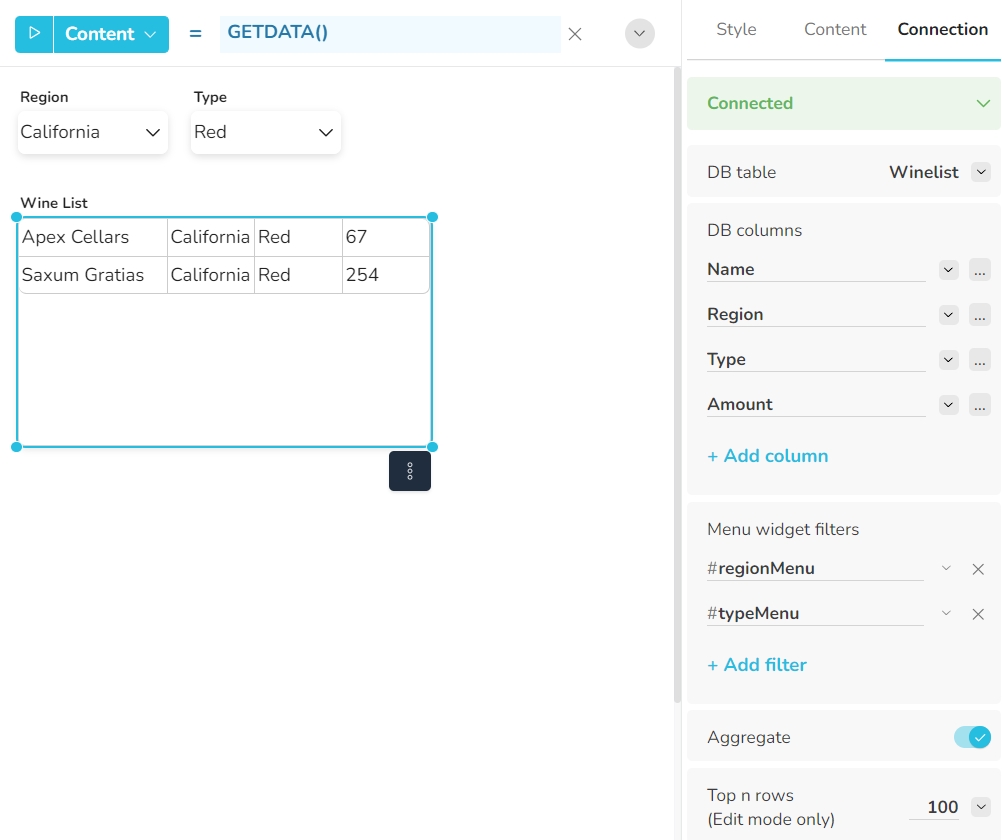Once a database connection has been established, there are different options available for ODBC, SSAS and OData to retrieve data.
In the Schema menu, you can select the schema of an ODBC data source from which the database tables are to be read.
In the DB table menu you can select the database table, view or cube whose content should be displayed in the widget. To retrieve the content, use the function GETDATA() with no parameter in the Content formula.
In DB columns, the database columns can be selected from which the content for the table widget should be retrieved. Click on "Add column" to add an additional column to the list.
For each column, the "..." menu provides options to
move or delete the db column
sort up or down by the db column
In addition, the order of the columns can be changed by drag and drop using the drag icon to the left of the db column name.
Defines menu widgets, which are used as filter for the database request.
Remarks
The specified menu widgets must contain a database request as well, including one db column, as described above.
If is possible to manually enter a widget reference to a menu on another page, in the usual syntax #pageName.menuWidgetName
For ODBC connections, the Aggregate property defines if single datasets should be returned or an aggregation over all numeric database columns.
Specifies the number of rows which should be returned by the database request in Edit mode.
If this property is activated, the top n restriction only applies in Edit mode. In Live mode, all data sets are queried.
For SSAS connections, the Suppress empty rows property specifies if all rows should be returned by the database request, or only the rows which contain values (measures) for the selected db columns.
For hierarchy and hierarchy menu widgets, the property "Number of levels" specifies the number of columns which define the hierarchy. If the setting automatic is selected, the number of non-numeric columns define the hierarchy.



